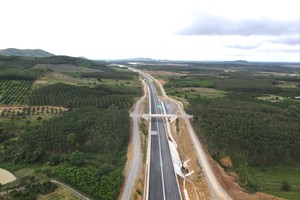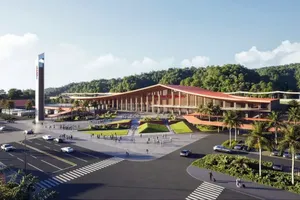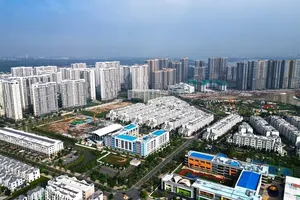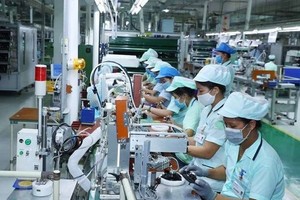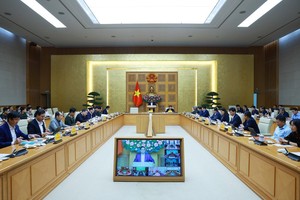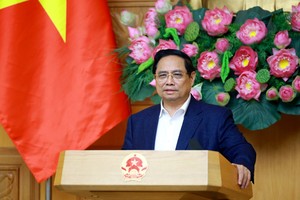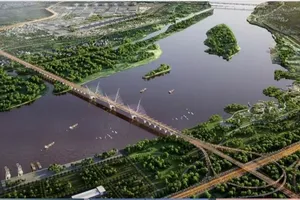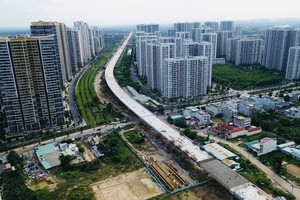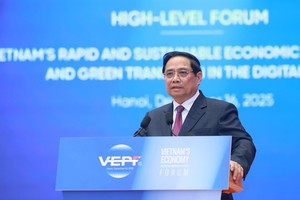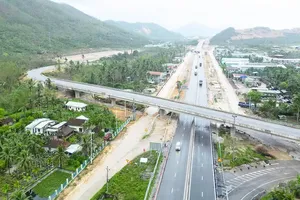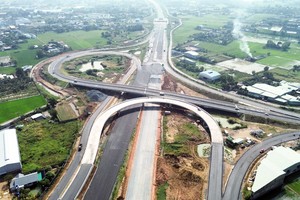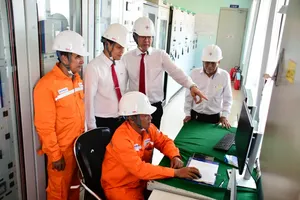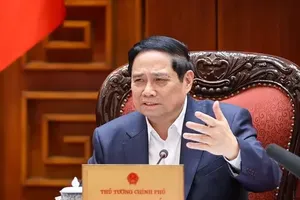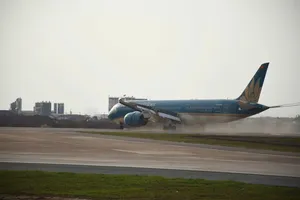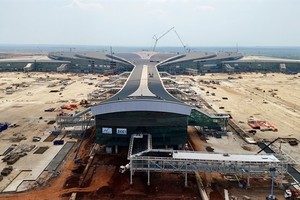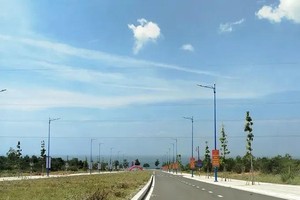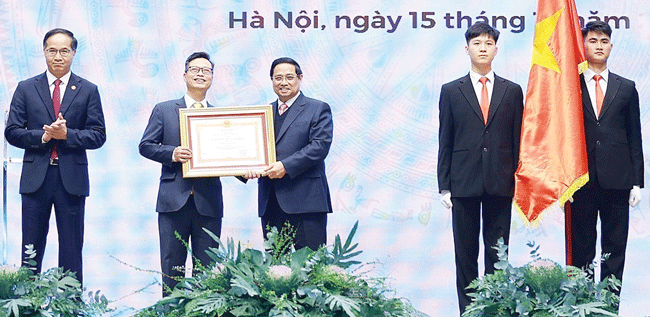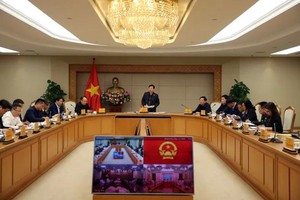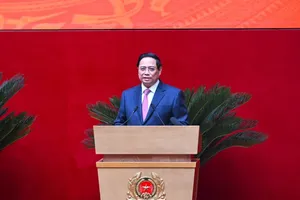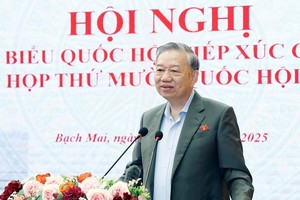
Garrett Mauris, American expat in Hanoi
All schools were suspended following the virus outbreak so I do not go to work. As the weekend pedestrian street around Hoàn Kiếm Lake, my favourite spot, is closed, I mostly stay inside watching movies and cooking as days pass by.
I get updates on the virus from Reddit, Hanoi Massive Facebook community and my Vietnamese friends. I have some food but not much more than normal, I still go to the grocery store but didn't buy any more toilet paper.
The Vietnamese Government has had a swift and strong response to the virus. I think they've done a good job containing it.
Against all odds, I feel safer staying in Hanoi than I would be in the US where the treatment expenses are very expensive and not everybody gets insurance to cover or partially cover necessary treatments.
Billy Gray, British expat in Hanoi
I feel like Vietnam is doing a good job so far in containing the virus. The immigration and quarantine measures are unfortunately necessary to stop the spread from being imported from abroad.
I think the timely response of the Vietnamese authorities in closing the border with China and later the rest of the world has definitely saved lives here.
As a foreigner living in Hanoi, I’m quite content to go along with the recommendations and measures put in place by the Government here. Frankly, I’m just glad there’s still toilet paper going around.
I have heard some stories of foreigners being verbally assaulted and refused service in cafes and hotels around Vietnam, and this is quite sad. Unfortunately, I’ve also heard similar stories coming out of the UK, Australia, and elsewhere. People are worried for their family’s sake, and they’re prone to shifting the blame on the ‘other’. It’s something that we should work together to overcome.
The coronavirus pandemic isn’t about to go away any time soon, so I think it’s important that Việt Nam doesn’t relax their control measures too soon, either. Obviously, this causes a lot of negative economic impacts, which means a lot of people can’t earn a living – and I hope that people are managing well under the circumstances.
The reality of the situation is that until more stringent testing can be carried out around the world, the best defence that I think Vietnam has is to keep its borders closed – even though that means that myself and many others who are returning home soon won’t be able to come back here for the foreseeable future.
All schools were suspended following the virus outbreak so I do not go to work. As the weekend pedestrian street around Hoàn Kiếm Lake, my favourite spot, is closed, I mostly stay inside watching movies and cooking as days pass by.
I get updates on the virus from Reddit, Hanoi Massive Facebook community and my Vietnamese friends. I have some food but not much more than normal, I still go to the grocery store but didn't buy any more toilet paper.
The Vietnamese Government has had a swift and strong response to the virus. I think they've done a good job containing it.
Against all odds, I feel safer staying in Hanoi than I would be in the US where the treatment expenses are very expensive and not everybody gets insurance to cover or partially cover necessary treatments.
Billy Gray, British expat in Hanoi
I feel like Vietnam is doing a good job so far in containing the virus. The immigration and quarantine measures are unfortunately necessary to stop the spread from being imported from abroad.
I think the timely response of the Vietnamese authorities in closing the border with China and later the rest of the world has definitely saved lives here.
As a foreigner living in Hanoi, I’m quite content to go along with the recommendations and measures put in place by the Government here. Frankly, I’m just glad there’s still toilet paper going around.
I have heard some stories of foreigners being verbally assaulted and refused service in cafes and hotels around Vietnam, and this is quite sad. Unfortunately, I’ve also heard similar stories coming out of the UK, Australia, and elsewhere. People are worried for their family’s sake, and they’re prone to shifting the blame on the ‘other’. It’s something that we should work together to overcome.
The coronavirus pandemic isn’t about to go away any time soon, so I think it’s important that Việt Nam doesn’t relax their control measures too soon, either. Obviously, this causes a lot of negative economic impacts, which means a lot of people can’t earn a living – and I hope that people are managing well under the circumstances.
The reality of the situation is that until more stringent testing can be carried out around the world, the best defence that I think Vietnam has is to keep its borders closed – even though that means that myself and many others who are returning home soon won’t be able to come back here for the foreseeable future.
Amélie Huynh Le Maux, French expat in HCMC
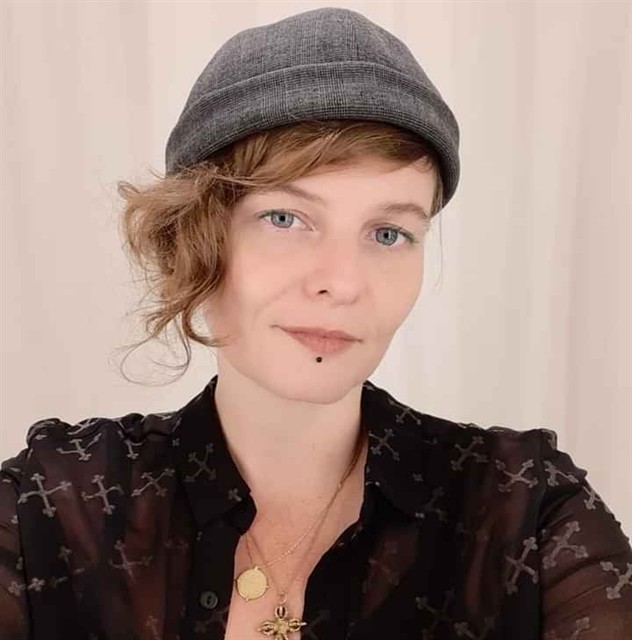
Living in Vietnam for four years, it never ceases to surprise me! The earlier measures the Government took were efficient when we compare international cases’ numbers.
Concerning tightening immigration policies, I understand doing it to avoid virus spreading. My only fear is not being able to stay in Vietnam that I consider as my country, if it is tightened again.
At first, I found the virus prevention and control measures very restrictive but, as a lot of foreigners, I did not experience a virus outbreak before, and I was maybe too relaxed. Now, I wear a mask, not really to be safer because it does not work this way and I take precautions (washing hands and self-confinement as much as possible), but to protect others and ease Vietnamese people. They sometimes glare at us because they are anxious near foreigners. I do not blame them, everyone is anxious, and we see some negative behaviours all over the world, but these are just isolated cases, a lot of people support each other too!
I am thankful to Vietnam for the measures taken because I feel safe here. We do not have total confinement, as in my home country, and actions are fast for smaller confinement of buildings if needed.
Josh Stewart, British expat in Hanoi
Concerning tightening immigration policies, I understand doing it to avoid virus spreading. My only fear is not being able to stay in Vietnam that I consider as my country, if it is tightened again.
At first, I found the virus prevention and control measures very restrictive but, as a lot of foreigners, I did not experience a virus outbreak before, and I was maybe too relaxed. Now, I wear a mask, not really to be safer because it does not work this way and I take precautions (washing hands and self-confinement as much as possible), but to protect others and ease Vietnamese people. They sometimes glare at us because they are anxious near foreigners. I do not blame them, everyone is anxious, and we see some negative behaviours all over the world, but these are just isolated cases, a lot of people support each other too!
I am thankful to Vietnam for the measures taken because I feel safe here. We do not have total confinement, as in my home country, and actions are fast for smaller confinement of buildings if needed.
Josh Stewart, British expat in Hanoi
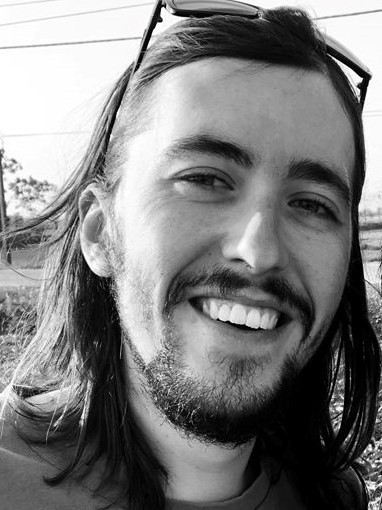
Vietnam's policies have been spot on as far as I can tell. In my eyes they have set the benchmark for how the rest of the world should tackle this issue. While the European powers have denied COVID 19's implications, Vietnam hasn't messed around.
As a foreigner living here I feel safer than if I was at home. I understand that there has been some friction between foreigners and locals however I have not experienced that myself.
The Government has done good things for virus protection in the name of immigration policies for those entering the country. However they haven't addressed the issue of residency for foreigners who are already here in a long term. A number of my colleagues and friends have labour contracts expiring soon, and with it, their legal right to stay here. With borders across the world closing, pretty soon many of us will be stranded.
When it comes to isolation I feel the authorities could be stricter. I still see many people, locals and foreigners alike, going about their daily business and socialising. Many don't have masks. I get it, isolation can be boring and you have to take care of your mental health. But this could all be over by the end of April if everyone simply knuckled down and stayed inside.
Hanh Khue, Vietnamese, NGO employee
At 11pm on March 6, fences started being put up in my neighbourhood on Thuỵ Khue Street, Tay Ho District after the 17th patient who failed to declare her health status after returning from London tested positive for COVID-19. My neighbour, a receptionist at Hong Ngoc Hospital, was reportedly in contact with the patient and sent to a centralised quarantine area that night. Astronaut-like medical workers in their hazmat suits immediately appeared and sprayed disinfectant along the alley. A task force was sent to inspect my neighbour’s contacts since her encounter with the patient and found out that she shopped at a nearby grocery store the day before. Both her house and the store were then kept under lockdown.
The rapid response did help to ease residents’ panic and discrimination towards isolated people, conversely, they were willing to offer guard forces and those kept under isolation assistance when needed.
However, for people who have to home-quarantine, it was neccessary for local authorities to make an official announcement sent to every household, explaining their conditions and the reasons for the measures taken to stop rumors from spreading.
Linh Chi, Vietnamese, social worker in Hanoi
Although citizens are encouraged to stay away from crowds, I had to still commute from Ha Dong District to downtown Ba Trieu Street by bus daily before being allowed to work from home from Thursday. Drivers, attendants and passengers wore masks even before the Government’s request took effect on Monday.
Now and then when a rider gets on a bus without having their mouth covered, they will be reminded by fellow passengers. Many buses turn off their air conditioners and have windows opened, allowing natural circulation of air.
It is good to see how good community awareness and authorities’ responses to the disease are.
Meanwhile, I think it is critical to instruct people how to deal with their used facemasks to both keep the environment clean and prevent profiteers from collecting them for resale.
